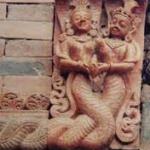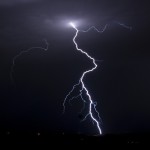This is a passage from a teaching by Master Han Shan called “The Maxims.”
In the ego’s world of illusion, all things are in flux. But continuous change is constant chaos. When the ego sees itself as the center of so much swirling activity, it cannot experience cosmic harmony.
For example, what the ego considers to be a devastating hurricane is, as far as the universe is concerned, a perfectly natural event, a link in the endless chain of cause and effect. The universe, having no ego, continues its existence without rendering judgments about hurricanes or ocean breezes.
We think of ourselves as the center of the universe a lot of the time. This is how powerful our delusion is. We make enemies out of everything all the time because we have this idea that we are separate and also important. We sometimes build mountains out of sandcastles, seeing great importance in every little desire and every perceived wrong that’s done to us. And we rail against change, lamenting the passage of time or denying it altogether. We go to great lengths to pretend life won’t disappoint us. But it will. As my favorite fake Shakespeare (Fakespeare?) quote says, “Expectation is the root of all heartache.”
We have to stop expecting things all the time.
But this is the message, really. The cosmic harmony that Han Shan is talking about is really important. It’s just realizing one important thing. We don’t come into the world. We come out of it. We can shift our minds just a little bit and realize that the world isn’t something out there. It’s us. We are part of our environment in countless ways. Thinking of the world as something “out there” doesn’t always serve us very well.
It’s because of our perceived separation that we feel things like jealousy and endless desire.
I like to quote the poet Rumi who said, “You are not a drop in the ocean. You are the entire ocean in a drop.”
If we can be present, fully present, then we can learn how to see things as they really are. We can see ourselves as part of a whole, fully awake, luminous and free.
That is cosmic harmony.
When we are empty of ego we, too, can carry on in calm acceptance of life’s varying events. When we cease making prejudicial distinctions – gentle or harsh, beautiful or ugly, good or bad – a peaceful stillness will permeate our mind. If there is no ego, there is no agitation.
This is equanimity, an attitude that accepts the way things are with a calm and even mind. Equanimity is the attitude of regarding all beings as equals, regardless of their relationship to oneself. This sounds simple, but it’s very difficult to cultivate. It involves trying to view all things as equal, not being attached to our circumstances or to our desires. Letting things just be as they are.
A mind of equanimity is a mind without distinctions, a mind that doesn’t chase after this or that. When your mind is in equanimity, whatever you do is the same as doing nothing at all.
———————————————————












